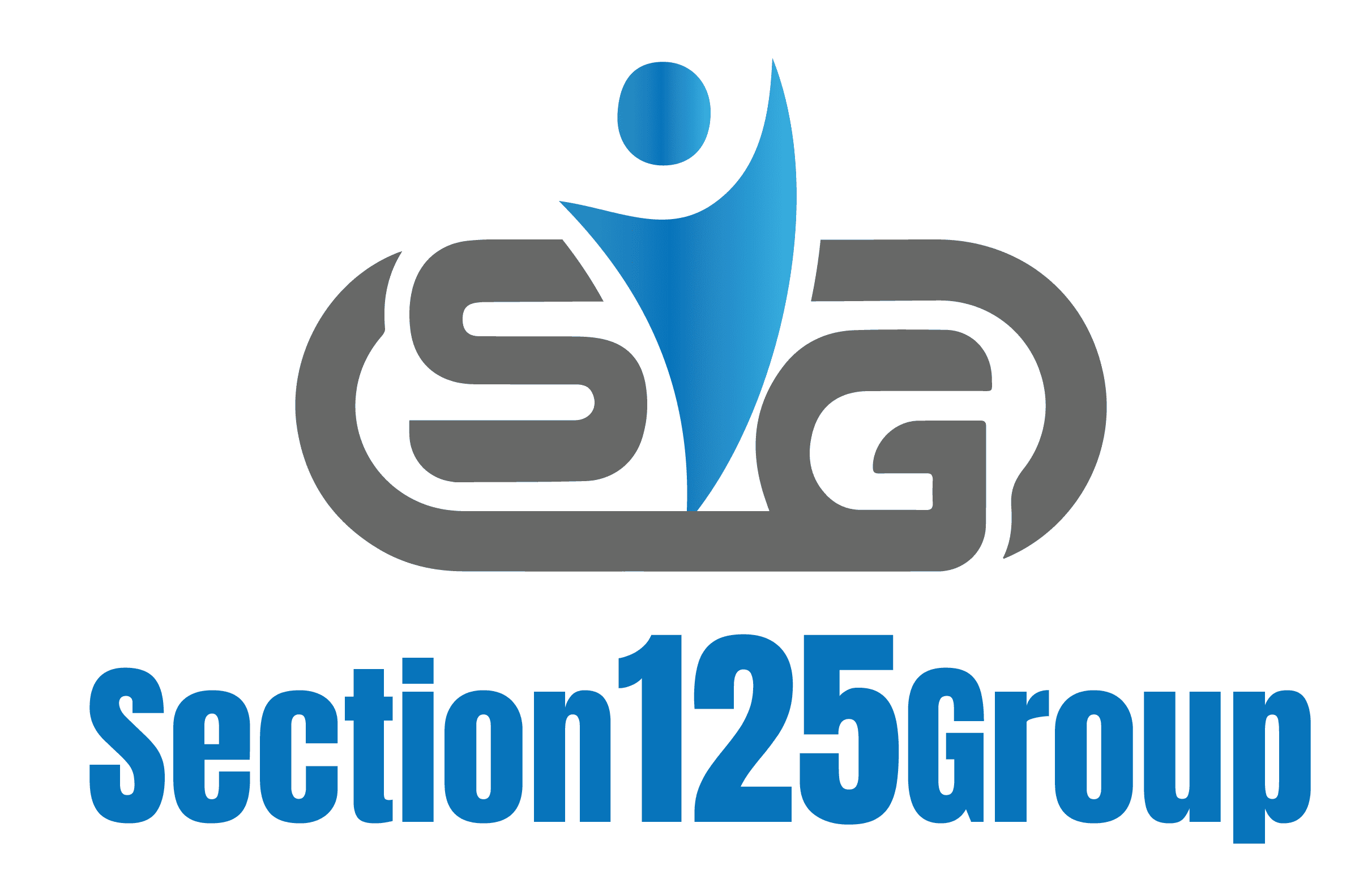Nobody enjoys wasting money. But every year, thousands of employees accidentally let their FSA funds expire simply because they didn’t understand how Flexible Spending Accounts (FSAs) work. If that thought stings a little, don’t worry—you’re not alone, and you’re in the right place.
Whether you’re a new employee enrolling for the first time or a seasoned HR decision-maker helping your team navigate benefit options, understanding your FSA terms can save real money. At Section125Group, we help employers and employees take full advantage of pre-tax benefits—without surprises.
This blog will walk you through what happens if your FSA funds expire, how much you can carry over, what expenses qualify, and how to confidently use your account without leaving money on the table.
What Are FSA Funds—and Why the Clock Is Ticking
Flexible Spending Accounts (FSAs) are tax-advantaged accounts that help you save on out-of-pocket medical expenses. You contribute pre-tax dollars through payroll, and then use that money throughout the year to pay for eligible items, like prescriptions, copays, and even dental work.
But here’s the kicker: most FSAs come with a “use it or lose it” rule. That means if you don’t spend the money within the plan’s deadline, your funds may disappear.
It’s not just frustrating—it’s avoidable.
Let’s unpack how this works.
So, Do FSA Funds Expire? The Truth You Need to Know
Yes, FSA funds expire—but not always in a straightforward way. Here’s what you need to look out for:
The Standard Deadline: December 31st
In many traditional FSA plans, your contributions must be used by the end of the calendar year. Anything left over? It’s gone unless your plan includes an extension.
The Grace Period Option
Some employers offer a grace period of up to 2.5 months, meaning you have until mid-March of the following year to use your funds.
This extension can be a lifesaver—but it’s not required by law, so check your employer’s plan summary to confirm.
The Carryover Rule
Instead of a grace period, some plans allow a carryover of unused funds into the next plan year. But there’s a limit.
How Much Can You Carry Over in Your FSA?
This is one of the most asked questions we hear at Section125Group—and for good reason. If you’ve got leftover funds, knowing the exact carryover limit can mean the difference between saving and losing hundreds of dollars.
As of the 2025 tax year, you can carry over up to $640 in unused FSA funds into the following year, if your plan allows it.
Know Your Employer’s Choice
Employers can choose between a grace period and a carryover, but not both. So, ask your HR team which rule applies to your plan.
Keep Track of Deadlines and Limits
The IRS updates the FSA carryover limit annually to adjust for inflation. Stay informed, and review your benefits at open enrollment every year.
How Can I Use My FSA?
If you’re wondering how to use your FSA before funds expire, the options might surprise you. FSAs cover far more than just your copay at the doctor’s office.
Here’s a breakdown of how you can make the most of your account:
Eligible Medical Expenses
You can use your FSA to pay for deductibles, copays, prescription drugs, medical equipment, and even certain over-the-counter medications.
Dental and Vision Costs
Need new glasses or dental cleaning? FSAs cover a wide range of dental and vision care services.
Mental Health Support
A growing number of employees ask: Can you use FSA for therapy? The answer is yes, if the therapy is for a diagnosed medical condition and prescribed by a licensed professional.
This can include counseling, psychological visits, and even hypnotherapy under qualifying conditions.
Unexpected Expenses
Need a knee brace? Bandages? Sunscreen with SPF 15 or higher? These are FSA-eligible too—just make sure you keep receipts and double-check the eligibility list.
At Section125Group, we often recommend using an FSA store (online marketplaces that pre-filter eligible items) to avoid guesswork.
Should I Have an FSA? Here’s Who It’s Great For
An FSA isn’t for everyone, but it can be incredibly beneficial for the right person. If you’re asking, should I have an FSA?, consider the following:
You Expect Medical Expenses This Year
If you or your dependents expect regular doctor visits, prescriptions, or dental care, an FSA can reduce your tax burden significantly.
You’re a Planner
FSAs reward proactive people. If you budget your healthcare spending and stay ahead of deadlines, this account puts cash back in your pocket.
You’re Looking to Maximize Benefits
If your employer offers matching contributions or a carryover feature, you could essentially stretch your healthcare budget without paying extra.
FSA Requirements: What You Need to Enroll and Stay Compliant
It’s one thing to know how an FSA works, but if you’re unclear about the rules, it’s easy to miss out.
Here’s what you need to know about FSA requirements to stay compliant and get the most out of your plan.
Enrollment Period
You can only sign up for an FSA during your company’s open enrollment period or after a qualifying life event (like marriage, birth, or job change).

Contribution Limits
The IRS sets annual limits on how much you can contribute to an FSA. For 2025, the maximum is $3,200 per employee.
This limit applies even if you have multiple jobs, so plan accordingly.
Receipts and Documentation
FSAs often require proof of purchase for reimbursement. Always keep your receipts and explanation-of-benefits (EOB) statements from insurance providers.
Use It—Don’t Lose It
It’s worth repeating: many FSAs still follow a “use it or lose it” rule. Set reminders. Use eligible apps. Stay ahead of expiration dates.
The Employer’s Role in Preventing FSA Fund Loss
If you’re an HR leader or business owner, you’re probably already balancing costs, compliance, and employee happiness. At Section125Group, we see it all the time.
And here’s the truth: educating your team about FSA expiration can prevent frustration and build trust.
Clear Communication
Send out reminders before deadlines. Include FSA updates in your internal newsletters. Make education part of your benefits strategy.
Offer Carryover or Grace Period
If you can, choose a plan option that gives employees flexibility. That small decision could have a big impact on retention and satisfaction.
Partner with Experts
Outsourcing benefits administration to a company like Section125Group helps you stay compliant, informed, and ahead of IRS changes.
Smart Strategies to Use FSA Funds Before They Expire
Now that we’ve answered “Do FSA funds expire?” and walked through the carryover rules, you might be wondering—how can you make sure you don’t lose money?
Here are smart, actionable strategies that employees and employers can use to make every dollar count.
Make a Spending Plan at the Start of the Year
This one sounds simple, but most people don’t do it. At the beginning of the year (or your plan year), list out all the medical, dental, vision, or therapy expenses you know you’ll have.
Even basic care, like routine dental cleanings or eye exams, adds up quickly. When you anticipate these costs in advance, you can match them to your FSA contributions.
Schedule Appointments Early
Don’t wait until December to schedule the care you need. Medical offices are notoriously busy at year-end, and you might miss your chance to use those funds if you’re stuck on a waitlist.
Booking ahead ensures you use your funds before the expiration date—or grace period—hits.
Stock Up on Everyday Health Items
From contact lens solution and first aid kits to acne treatments and baby thermometers—your FSA covers more than you think.
Explore eligible items online using trusted resources like FSAstore.com or apps that flag qualifying purchases. You’ll be surprised how many household items can be reimbursed.
Can You Use FSA for Therapy? Yes—but Here’s the Catch
Mental health care is one of the most asked-about FSA categories—and for good reason.
As more Americans prioritise mental wellness, many ask: Can you use FSA for therapy? Yes, but there are a few key conditions.
Therapy Must Be Medically Necessary
Your therapy sessions must be prescribed or recommended by a licensed medical provider to treat a diagnosed mental health condition. Casual coaching, life planning, or general wellness counselling typically do not qualify.
At Section125Group, we guide both employers and employees in understanding how to document this properly.
Licensed Providers Are Required
FSA-eligible therapy must be delivered by a licensed professional, such as a psychologist, psychiatrist, or licensed clinical social worker.
Apps that connect you with certified therapists may be eligible, too—just make sure the provider credentials and documentation line up.
Keep Your Receipts
Always retain an itemised invoice that lists the provider name, date of service, and diagnosis or purpose for the visit (if applicable). You may need this for reimbursement or verification.
Common Misconceptions About FSA Expiration Rules
A lot of people assume that because their employer offers an FSA, it’ll automatically roll over or extend.
Unfortunately, that’s not always the case.
Let’s clear up a few common myths that lead to lost dollars:
Myth #1: “I have until tax day to spend my funds.”
That’s true for Health Savings Accounts (HSAs)—but not FSAs. FSAs follow your plan year, not the IRS filing deadline.
Unless your employer offers a 2.5-month grace period, your funds could expire on December 31st.
Myth #2: “I’ll be notified if I’m about to lose funds.”
Not always. While some employers send reminders, many don’t. It’s your responsibility to monitor your account balance and spending.
Set calendar reminders and check your FSA dashboard regularly—especially in the last quarter of the year.
Myth #3: “I can just cash out my leftover funds.”
Unfortunately, no. FSAs are tax-advantaged, meaning they follow strict IRS rules. Leftover funds cannot be withdrawn, donated, or rolled into another account.
What Happens to Expired FSA Funds?
If you’ve reached the end of your plan year and still have unspent funds, with no grace period or carryover—what happens?
Funds Go Back to the Employer
Unused funds are typically returned to the employer. In some cases, they may be used to offset administrative costs or reduce overall plan expenses.
While that might make business sense, it doesn’t help the employee. That’s why education and reminders are so important.
You Miss a Financial Opportunity
Letting your FSA funds expire is like handing your money to the IRS. You worked hard for that tax-free income, so let’s make sure it works hard for you.
Section125Group helps businesses reduce this risk by offering automated alerts, resources, and employee education that boost engagement and usage.
The Role of Employers: How Businesses Can Help
FSAs are more than just a line item on a benefits form—they’re a powerful tool to support financial wellness, reduce taxable income, and boost employee satisfaction.
But none of that happens if employees don’t understand the rules.
Here’s how employers can step up:
Provide Clear Education at Enrollment
Use benefits meetings, email campaigns, and HR tools to explain FSA basics—especially around expiration dates, eligible expenses, and carryover limits.
Section125Group offers templated communication assets you can plug right into your internal channels.
Offer User-Friendly Tools
Give employees access to FSA calculators, eligible product lists, and mobile apps that let them check balances and submit receipts on the go.
The easier you make it, the more likely they are to use their funds.
Choose Plans That Prioritise Flexibility
Employers can customize their FSA plan design. Offering either a grace period or carryover makes your benefits package more attractive and reduces unused funds.
It’s a win for you and your team.
Why FSAs Still Matter in 2025
With rising healthcare costs, tighter household budgets, and growing interest in mental and physical wellness, FSAs remain one of the most underused yet powerful tools in employee benefits.
They’re flexible, tax-saving, and customisable—when used correctly.
Here’s why FSAs are still a smart move this year:
Tax-Free Savings
Every dollar you contribute reduces your taxable income. For many employees, this adds up to hundreds in savings per year.
Budget-Friendly Healthcare
FSAs allow you to plan for care costs. That means fewer financial surprises when the unexpected hits.
Mental Health Coverage
As more employers extend coverage for therapy and counselling, FSAs help bridge the cost gap, making care more accessible.
Employee Engagement
Offering a well-managed FSA program through partners like Section125Group helps position your company as proactive, supportive, and financially smart.
Final Thoughts: Take Control Before the Clock Runs Out
If there’s one thing you take away from this blog, let it be this: Don’t wait until your FSA deadline is looming. Start planning today.
Check your current balance. Review your plan rules. Think about what expenses are coming up—and use your funds before they vanish.
And if you’re an employer, now is the time to educate your team, choose the right plan features, and make it easier for employees to take advantage of every benefit.
At Section125Group, we believe informed benefits lead to empowered employees. Our job is to remove the confusion and replace it with confidence.
Let’s make sure your FSA dollars don’t just disappear—let’s make them work smarter.
Need help optimising your benefits package or improving FSA communication across your organisation?
Reach out to Section125Group today to see how we help employers and employees alike save more, stay compliant, and make the most of every tax-saving opportunity.

